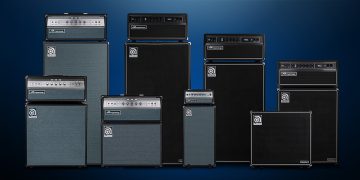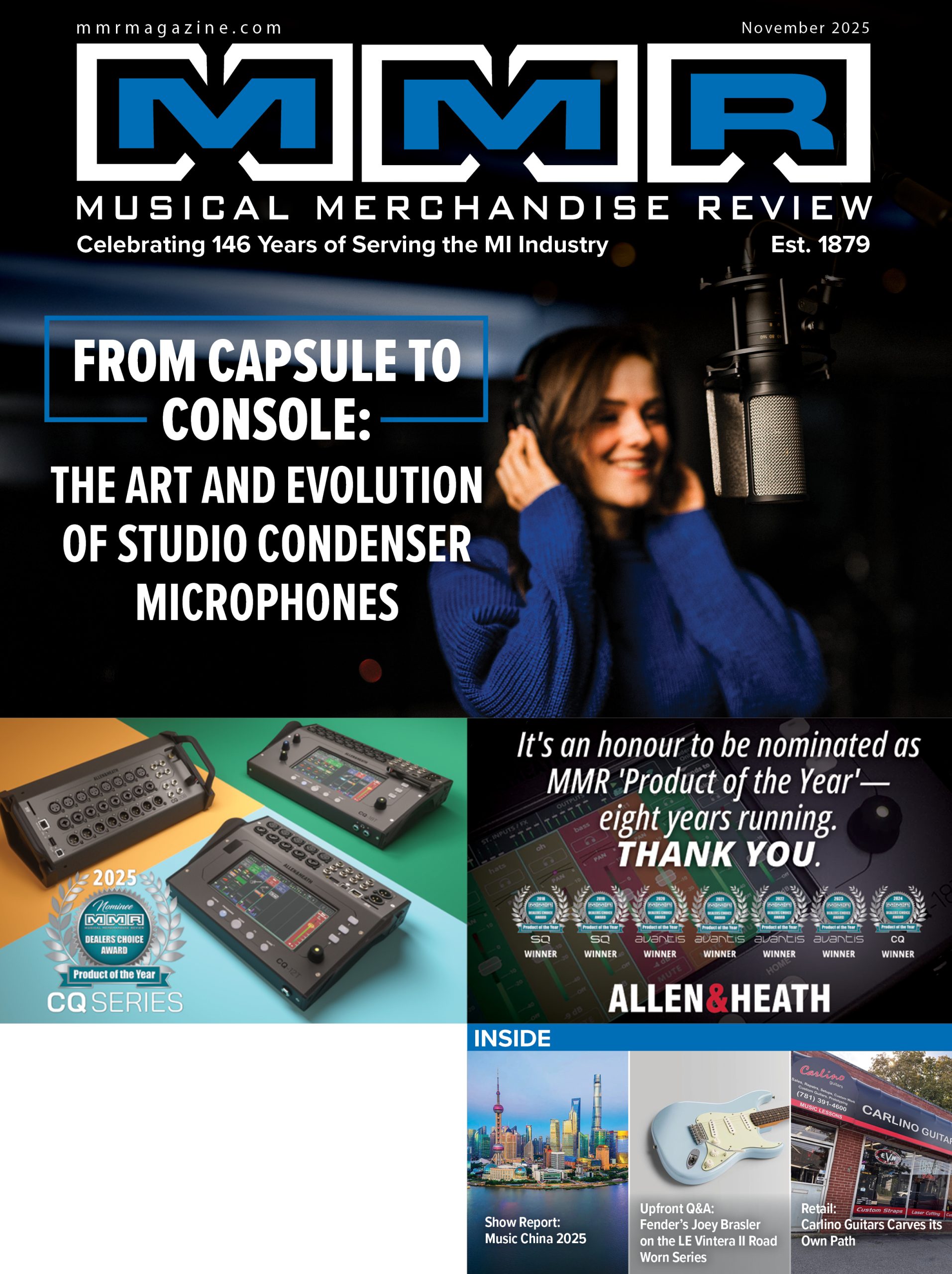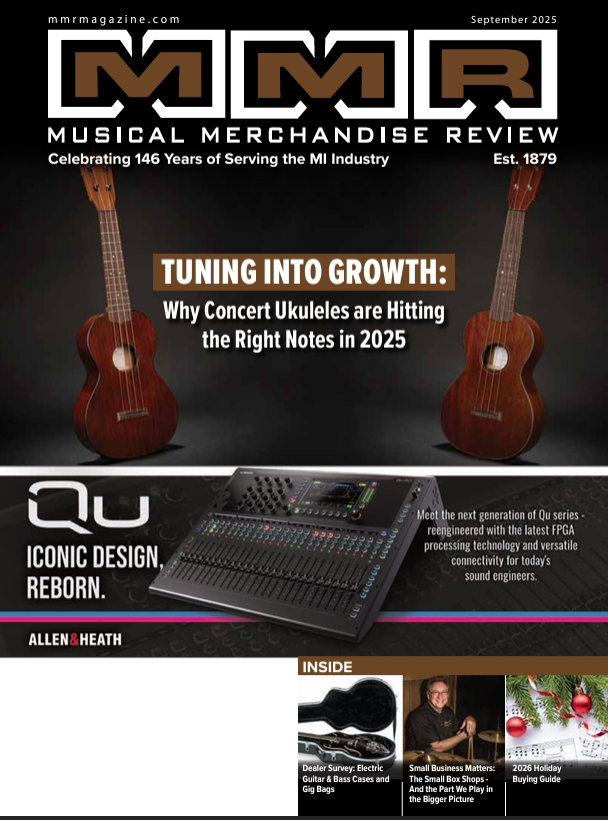 Long a crucial time of year that contributes significantly to the annual sales of MI retailers, the nature of “Back to School season” has changed significantly with the ever-increasing reach of e-commerce, online “research,” and big box competition.
Long a crucial time of year that contributes significantly to the annual sales of MI retailers, the nature of “Back to School season” has changed significantly with the ever-increasing reach of e-commerce, online “research,” and big box competition.
We recently polled over 500 MI stores to learn about their plans to capitalize on potential profits connected to the fall semester, as well as the factors that continue to impact – often negatively – the relationships between young music scholars, their parents, the schools themselves, and local businesses.
Folks had a lot to say on these topics, so without further ado…
Are you planning to have a Back to School sale, event, or promotion this year?
Yes: 75.2%
No: 18.6%
Haven’t decided yet: 6.2%
If you are planning an event, what will be its nature (feel free to select more than one option)?
In-store sale: 66.5%
Outdoor/parking lot/curbside gathering: 16.5%
Hosting a concert/performance: 6.3%
Off-site presence at another event (“Town Day,” parade, concert, et cetera): 7.9%
“Other”: 3.2%
“We do recruiting presentations from mid-May until late August aimed at rising 5th graders. It includes instrument demonstrations and then lots of time making sure the instrument choice is the correct one. We sponsor clinics for young band directors coaching them on instrument selection, starting tips for each instrument as well as basic classroom tips and survival techniques.”
Drew Parker
Separk Music Company
Lewisville, N.C.
“There are way more kids who want to play than there are teachers to teach them.”
Larry Gosch
Encore Music Center
Auburn, CA
Sales of instruments and musical gear leading up to the fall semester accounts for how much of your annual business?
0-25%: 43.6%
26-50%: 32.3%
51-75%: 19.8%
76-100%: 4.3%
For the past 23 years, our sister publication School Band & Orchestra (SBO) has sponsored the Annual SBO Music Students Scholarship Essay Question. In addition to writing about a given year’s topic/question, students are asked to provide the name of their primary music educator/school, as well as their local, go-to music store. That latter question has been getting fewer and fewer responses in recent years, to the point where, this year, hardly any of the 10 winning students claimed to have a favorite local MI retailer, or even one they frequently shop at. What are your thoughts on the relationships between music stores and music students/educators/school districts? Do you feel fewer young players are coming into stores and, if so, what steps (if any) are you taking to address the issue?
“I’m seeing a decrease in our student population and our sales are down. To me this looks like 2008 all over again. I visit schools and budgets are cut and many of my schools are slow pay. I am concerned we are headed for a recession.”
Daniel Yadesky
Yadco Music
North Versailles, PA
“School security has made the weekly visits to schools challenging. We have tried to be on call for Schools’ and districts’ needs as they arise. We assist our town district with a September ‘petting zoo’ where 4th graders get to choose their instrument for the fall. We offer an open-house program at our store for parents and students to get a similar experience.”
Jeff Shaw
The Music Shop
Southington, CT
“Since Music & Arts has school music field representatives, we don’t quite have the floor traffic as stores that may not use this format. This is made up by having various promotions and clinics in-store throughout the year. These have greatly helped keep our sales traffic flow.
David St. John
Music & Arts
Glendora, CA
“Definitely less young players and specifically their young parents with loyalty to a particular store. However, I’m finding that once the problems begin with poor quality ‘Amazon’ instruments, from then on we have a pretty constant customer because they now understand why the instrument they get their child matters. Some teachers seem to be pretty bad about educating parents about the different instruments and, frankly, I’m not sure some of them understand it!
“An observation from 40+ years in this industry: The older teachers who have retired saw the relationship with a music store to be a plus and a resource they could tap to improve their program and make their job easier. The younger teachers that have replaced the older ones really don’t want and/or feel they need a relationship with a music store. All the information they need was taught in college or is available on the internet.
“One thing we do to help drive students in is offer affordable instruments by John Packer that are decent playing and relatively well built for an affordable price. We can offer something that is closer to the internet junk prices but in a horn that will actually work for the student. Of course we also rely heavily on our rental program as well for the budget minded customer.
“It is also of critical importance to be respectful of a customer who comes in with a junk instrument and also not refuse to repair off brands if you feel they can be repaired adequately. One of our competitors causes us to gain repairs and sales because they are unwilling to repair any ‘off brands.’”
Kevin Walters
Central Penn Music
Palmyra, PA
“We provide (and do the presentation) of awards at area marching contests. We have our reps visit the schools on a regular basis.”
Michael White
White’s Music Box
Las Cruces, N.M.
“Big box retailers in metro areas have dramatically eroded mom & pop stores instrument rental business, with the possible exception of specialty MI shops, which I believe is the reason for the lack of detailed responses from essay participants. In our smaller market area we still actively promote and pursue our tight-knit relationships with surrounding school districts and educators.”
Jerry Vesely
Vesely Music
Parowan, UT
“It’s just too easy to get online what you used to need to come to a music store for. The problem with the typical beginning band family is that they don’t know what they don’t know. The guidance they get on a website cannot duplicate what they get from a concerned and caring music store staff. But in many cases now, we are their 2nd choice after being disappointed by what they got online. We need to do whatever it takes to keep that customer coming back to us.
“Our relationship with the directors we serve is critical to building back our face-to-face customer base. We always ask what school their child attends and make sure that the next time that student shows up in class, they have exactly what the teacher sent them to us for. It’s a win-win-win if it’s done consistently.
“When mom and dad come in with their young saxophonist, we make sure that we talk to them as well as their parents. They are the long-term customer and parents appreciate that we take the time to educate their child (and them indirectly). Where possible we try to remember first names so that we can call them by name when they come next time. Our dog who greets them at the front door does a great job.”
Drew Parker
Separk Music Company
Lewisville, N.C.
“Far fewer kids are coming in. My sense is that the culture posits that individuals can become ‘expert’ in anything on the other end of a Google search (‘research’ they call it), and those individuals have heard so many wackos sound off there that they’re suspicious of anyone purporting to actually know anything about a topic. Therefore, trust in what store employees/sales folks have to share – regardless of how many years’ worth of experience such folks have had with the very topics at hand – is very low. My pseudo-sociology ends there, so I don’t know what to do about it. Maybe the tide will turn someday and experience will be valued again.”
Derek Sharp
Supersonic Music
Topeka, KS
“Certainly the average student is spending less time visiting brick and mortar music retail than they have in the past. This is a function of growth over years in E-commerce, a decline in the overall number of ‘local’ music retailers, and a general distancing from traditional retail by the consumer. It would be wrong, however, to assume that because the student is not listing a favorite go-to music store that the relationship between educators and school districts is somehow lessened by e-commerce. Quite the contrary, given that there are fewer brick and mortar stores actively serving the needs of the educator, if anything districts and teachers are more reliant upon their local retailer. They have fewer options for repair services, installation services, and the individualized support that they need to keep their programs running smoothly. The local music retailer is best positioned to ensure that recruiting and retention efforts are maximized and that tailor-made support if provided to the educator and their program, and the educators support their local retails because of this. Given that the students (in general) are not the ones who are making the purchasing decisions in the products they consume, their lack of identifying a ‘go-to’ music store is concerning, but not necessarily reflective of a decline in support of the local retailer. I believe that those responsible for the actual financial transactions associated products and services we sell would absolutely have a go-to store that they would name (be it big box, e-commerce, or independent).”
Jonathan Breen
The Music Shoppe, Inc.
Normal, IL
“We have noticed a decrease in the number of young players visiting our store, which can be attributed to several factors. The rise of online shopping and its convenience have altered the way people acquire instruments and accessories. We understand that families may find it more convenient to purchase online, bypassing the need to physically visit our store. Moreover, the increasing reliance on digital resources, such as online tutorials and virtual instrument simulations, has also impacted the frequency of visits to music stores.
“To address this issue, we have taken proactive steps to adapt and remain relevant in this evolving landscape of music education and commerce. We are committed to engaging young players and encouraging their continued patronage by implementing the following initiatives:
- Educational Outreach: We actively collaborate with music educators and school districts to organize workshops, masterclasses, and instrument demonstrations within schools. By showcasing our expertise and resources, we aim to highlight the unique benefits of in-person interactions and hands-on experiences.
- Community Events: We host a range of events that bring together musicians of all ages, including performances, and drum circles. These events create a sense of belonging and provide young players with opportunities to interact with experienced musicians, fostering inspiration and growth.
- Online Presence: Recognizing the importance of the online sphere, we have begun to make changes to our online presence through our website, active social media accounts, and participation in online marketplaces. We provide comprehensive information about our products, services, and special offers to cater to customers who prefer online shopping.
- Partnerships with Music Educators: We actively seek collaborations with music educators, aiming to create referral programs and incentive schemes that encourage students to visit our store. By working closely with educators, we can support music programs while ensuring that students have access to quality instruments and resources.
- Instrument Rental Programs: We offer flexible and affordable instrument rental programs designed specifically for students. By making it easier for beginners to access high-quality instruments, we hope to establish long-term relationships with young players and provide ongoing support throughout their musical journey.
Ted Brown Music remains dedicated to adapting to the changing needs and preferences of young musicians while preserving the value of personal interactions and the unique experiences that our physical store offers. We are committed to serving as a trusted resource and community hub for music students, educators, and school districts, and we continuously strive to enhance the relationships within the music community we are proud to be a part of.”
Garrison Grisaffi
Ted Brown Music
Tacoma, Washington
“Too many Vendors sell direct to the collegiate school accounts. While this bad behavior has been going on for a long time, bringing the dealer back into the supply chain would be the best way to invest in the future of band and orchestra sales.”
Anthony Mantova
Mantova’s Two Street Music
Eureka, CA
“In Ontario, I feel like smaller music stores are more likely to make connections with students and teachers more than large corporate stores. People seem to prefer the local personal feeling of a small store over a box store. Unfortunately, band and orchestra sales are handicapped by not offering school discounts to low volume stores. This means that smaller stores must continue to refer students and educators to large competitors in order to secure their products. It forces a disconnect between player and store. We continue to offer repair services on student level instruments, but hardly see any younger players for band and orchestra.”
Jaco Rendell
Case’s Music
Sault Ste. Marie
Ontario
Canada
























